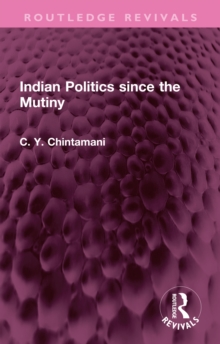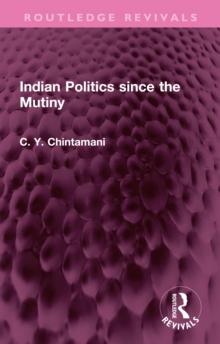
Institutions and Collective Choice in Developing Countries : Applications of the Theory of Public Choice PDF
by Mwangi S. Kimenyi, John Mukum Mbaku
Part of the Routledge Revivals series
Description
First published in 1999, this volume is written by seasoned public choice scholars and is intended to make a significant contribution to the debate on peaceful coexistence and sustainable development in developing countries. The book contains a rich mixture of analytical ideas and views on collective choice and macroeconomic performance in developing countries. This book breaks new ground in that it is the first comprehensive application of the theory of public choice to collective decision making in developing societies. It provides both students of Third World studies and policy makers in developing societies an in-depth analysis for institutions for collective choice. For countries undergoing major reform of their political and economic institutions, public choice theory can provide significant and useful insights, and help these societies design and adopt institutional arrangements that enhance peaceful coexistence of groups, the creation of wealth and sustainable development. Specifically, the book successfully shows that: (1) the application of economic theory to the study of public policy in the developing countries can provide important insights into collective decision-making; (2) the application of public choice theory to the study of developing societies can significantly improve the efficiency of bureaucratic and governmental systems, and consequently, promote economic, political and social development; and (3) public choice can help developing societies design and sustain effective laws and institutions for peaceful coexistence of groups and achieve sustainable development.
Information
-
Download - Immediately Available
- Format:PDF
- Pages:448 pages
- Publisher:Taylor & Francis
- Publication Date:23/05/2019
- Category:
- ISBN:9780429806315
Other Formats
- EPUB from £29.69
- Hardback from £130.00
- Paperback / softback from £31.19
Information
-
Download - Immediately Available
- Format:PDF
- Pages:448 pages
- Publisher:Taylor & Francis
- Publication Date:23/05/2019
- Category:
- ISBN:9780429806315










